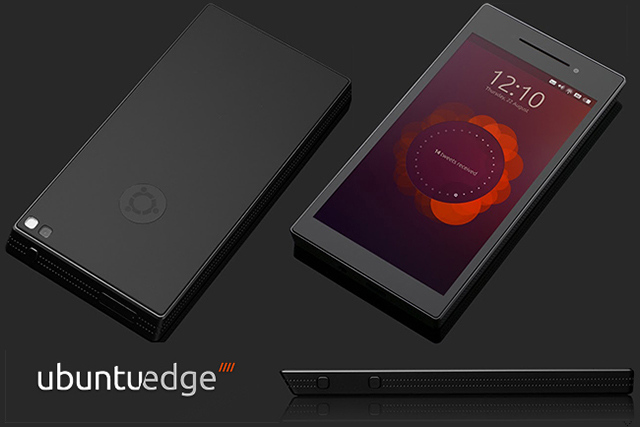

UBUNTU is in the headlines again. It's about Ubuntu Edge, which I have been watching for over a month, even before the announcement about it (thousands of articles have been published since then). While it is true that Ubuntu Edge did not reach its target/goal [1-4] Canonical does not view it as a failure [5-8] and it also marks a new world record [9], so it is definitely not a "failure" [10]. Perhaps the only failure was setting the goal as high as $32,000,000. Had the goal been set at $12,000,000, which is a high number (also aiming at a world record), what would the whiners have complained about? There is a lot of negative coverage (see the latest in [11-29]) and Jono Bacon does the usual PR/damage control in his blog [30-32]. Ubuntu did, despite scepticism, make it past 12 million [33], thanks for the most part to US-based buyers [34] and development for the Ubuntu Edge platform definitely continues [35] (with or without a phone that is Canonical-branded), so why be so pessimistic and negative? Canonical already has several phone-producing partners. I am hardly known as a fan of Ubuntu, but the press coverage seemed crude, mean, and generally biased. Let's be happy that Canonical proved enormous interest in GNU/Linux-based phones that also plug into larger machines (with peripherals) and thus act as desktops. Just like CrunchPad and other such products/concepts/prototypes which predate iPad and Android tablets, Ubuntu Edge can signal the way of the future. Linux and GNU derived a lot of good publicity from this, having been portrayed in some media as innovative, trailblazer, or whatever. Thanks for Ubuntu Edge, Canonical. Ignore those who envy the fund-raising record. ⬆
The Ubuntu Edge crowdfunding campaign finished today, which despite having more money pledged than any previous crowdfunding campaign, fell $20 million short of its massive $32 million target.
The company didn't make its goal, but its leaders still see the crowdsourced Ubuntu Edge campaign as a success.
Canonical founder Mark Shuttleworth on how the Ubuntu Edge would have been a "time machine" offering a glimpse at the future of mobiles.
Canonical raised only US$12.8 million of the $32 million it wanted for the production of the Ubuntu-based Edge smartphone.
Just a quick flag-in-the-sand post to mark the fate of a possible Android-alternative – the Ubuntu Edge (“the next generation of personal computing: smartphone and desktop PC in one state-of-the-art device”) missed its crowdfunding target on Wednesday.
It reached a record total of pledges – $12.6m – but was still far from its very high target, of $32m. Under the terms of the crowd funding project, run on IndieGoGo, all contributions will be returned.
Um Bongo boss looks on bright side of $32m fundraising flop
When Canonical took to Indiegogo to crowdfund its Ubuntu Edge smartphone, the $32 million it sought seemed like an incredibly lofty goal. And, one that's now proven unattainable. Despite quickly selling out of the lowest pledge tier that included a handset, reducing the price of more expensive tiers, then doing the same again as the deadline loomed, the campaign has closed over $19 million shy of its goal. Still, raising just over $12.8 million is a record of sorts, depending on whether you believe a failed effort qualifies. In total, a handful of high-cost bundles were pledged for, 5,674 backers coughed up enough for a lone Edge, and many more thousands offered small sums in support -- or, some just really wanted a T-shirt. We're not convinced the journey ends here, though. After all, there's clearly some desire for the Edge. Will we see investors step in to make it happen? Or, perhaps Canonical founder Mark Shuttleworth will finally see fit to pump some of his own substantial reserves into the project.
The British software developer Canonical broke crowdfunding records on the site Indiegogo, but still fell around $20m (€£12.8m) short of what it needed to develop the phone.
Canonical, maker of the popular free operating system Ubuntu, wanted to produce a smartphone to showcase what its forthcoming mobile OS can do.
I am not surprised that we didn’t hit this ambitious $32million target, but I am surprised at what we did achieve. We broke all the crowd-funding records, garnered media attention across CNBC, Engadget, The Independent, TechCrunch, the BBC, T3, Stuff, The Verge, The Guardian, Wired, pandodaily, Fast Company, Forbes, The Telegraph and more. Every single person who put their support into the Ubuntu Edge campaign should be proud of their achievements and we are all thankful for your tremendous and inspiring support.
In my last article I talked about the new app upload process, but today I am going to talk about how developers write apps in the first place.
My presentation focused on the intersection between art and community, and the many similar driving forces behind both. Art is meant to be created, distributed, shared, and enjoyed, and communities are a wonderful way to infuse artists with opportunity. Likewise creativity is the backbone of great community.
Canonical has shared some interesting statistics about the Ubuntu Edge IndiGoGo project and about the top contributors.
Welcome to the second Ubuntu App Showdown, an open contest to develop new Ubuntu applications from startup to deployment in just six weeks! This time we’ll have a mobile theme, asking developers to write apps for Ubuntu on phones, the exciting new platform introduced earlier this year.